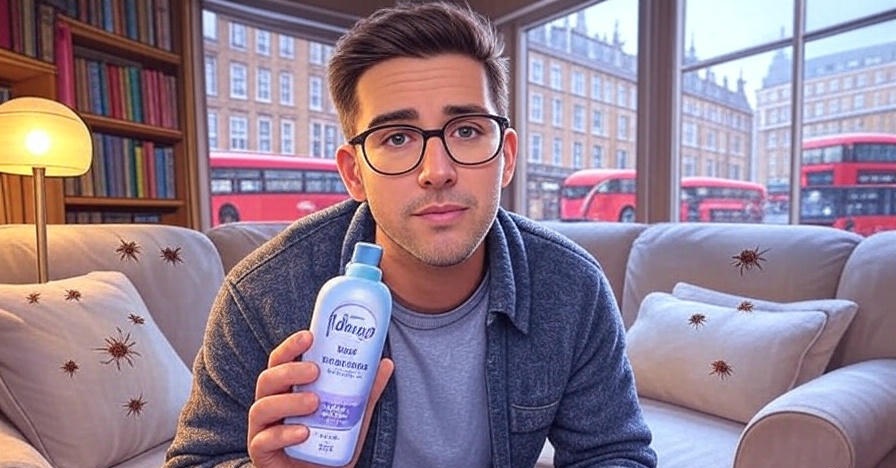
Introduction
Bed bugs are a persistent nuisance in London, creeping into homes, flats, and hotels, causing distress with their bites. With so many DIY remedies circulating online, one question often pops up: does Lavender Febreze kill bed bugs? In this article, we’ll dive into the truth behind scent-based solutions like Lavender Febreze, debunk common myths, and explore effective bed bug treatments for London residents.
Understanding Bed Bugs and Common Misconceptions
Bed bugs are small, reddish-brown insects that feed on human blood, hiding in mattresses, clothing, and furniture. They’re notoriously resilient, and many myths about easy fixes have emerged. One such myth is that scented products, like Lavender Febreze, can eliminate them. While these products may freshen your home, they’re unlikely to solve a bed bug problem.
Why Scent-Based Solutions Are Popular
Lavender and other essential oil-based scents are often touted as natural pest repellents. The idea that a pleasant-smelling spray like Lavender Febreze could kill bed bugs is appealing—it’s affordable, accessible, and seems like a simple solution. However, popularity doesn’t always equal effectiveness, and it’s important to separate fact from fiction.
For reliable health advice on bed bug bites and prevention, the NHS bed bug guide offers practical insights.
Does Lavender Febreze Kill Bed Bugs?
The short answer is no—Lavender Febreze does not kill bed bugs. Febreze, including its lavender-scented variants, is designed to neutralise odours and freshen fabrics, not to act as a pesticide. While the lavender fragrance might make your home smell pleasant, it lacks the active ingredients needed to eliminate bed bugs or their eggs.
Why Febreze Fails Against Bed Bugs
Here’s why Lavender Febreze isn’t effective for bed bug control:
- No Lethal Properties: Febreze contains fragrance compounds and water, not insecticides or heat-based agents that can kill bed bugs.
- Limited Repellent Effect: While lavender oil may repel some insects in high concentrations, the diluted lavender scent in Febreze is too weak to deter bed bugs.
- Surface-Level Application: Bed bugs hide deep in seams, cracks, and furniture, where Febreze’s spray cannot penetrate effectively.
The Dangers of Relying on Scent-Based Myths
Using Lavender Febreze or similar products can give a false sense of security. While you might feel like you’re addressing the problem, bed bugs will continue to multiply, potentially worsening the infestation. Instead of wasting time on ineffective remedies, it’s better to focus on proven methods. For professional pest control options, visit pest.co.uk for expert advice.
Effective Alternatives to Scent-Based Solutions
To tackle bed bugs in London, you need treatments that target their biology. Bed bugs are vulnerable to heat, certain chemicals, and physical removal. Here are some proven methods:
Heat-Based Treatments
Heat is one of the most effective ways to kill bed bugs. Temperatures above 48°C (118°F) for a few minutes or 60°C (140°F) instantly kill bed bugs and their eggs. Methods include:
- Tumble Drying: Wash infested clothes and bedding at 60°C and dry on a high-heat setting for at least 30 minutes.
- Steaming: Use a professional-grade steam cleaner to treat mattresses, furniture, and carpets, ensuring the steam reaches 60°C.
- Whole-Room Heat Treatment: Professionals can heat an entire room to lethal temperatures, eliminating bed bugs in all hiding spots.
Chemical Treatments
Insecticides approved for bed bug control can be effective when applied by professionals. These are often combined with heat treatments for maximum impact.
Vacuuming and Physical Removal
Regular vacuuming of mattresses, furniture, and floors can remove some bed bugs and eggs. Be sure to seal and dispose of the vacuum bag immediately to prevent re-infestation.
For tailored solutions in London, pest.co.uk’s bed bug treatment in London offers expert heat and chemical treatments.
Preventing Bed Bug Infestations
Once you’ve addressed an infestation, preventing bed bugs from returning is crucial. Follow these tips:
- Inspect Regularly: Check beds, furniture, and clothing for signs of bed bugs, such as dark spots or live insects.
- Use Mattress Encasements: Encase mattresses and pillows in bed bug-proof covers to trap any remaining pests.
- Seal Hiding Spots: Close cracks in walls, skirting boards, and furniture to reduce hiding places.
- Be Cautious with Used Items: Inspect second-hand furniture or clothing thoroughly before bringing them home.
Why Professional Help Is Essential in London
DIY methods like vacuuming or steaming can help, but they often fall short for larger infestations. London’s dense urban environment makes bed bugs a widespread issue, and professional expertise is often necessary for lasting results. At ThermoPest Bed Bug Treatment London, we specialise in advanced heat-based treatments that eradicate bed bugs quickly and safely.
Our team uses cutting-edge thermal technology to target bed bugs at every life stage, ensuring your home or business is pest-free. Whether you’re dealing with a small outbreak or a severe infestation, ThermoPest provides customised solutions for Londoners.
Conclusion
So, does Lavender Febreze kill bed bugs? No, it’s a myth that scent-based products like Febreze can eliminate bed bugs. While they may make your home smell nice, they won’t solve an infestation. Instead, focus on proven methods like heat treatments, chemical solutions, and professional pest control. For London residents battling bed bugs, ThermoPest offers the expertise and technology to get the job done.
Don’t let bed bugs take over your home. Contact ThermoPest Bed Bug Treatment London today for effective, heat-based solutions tailored to your needs.

